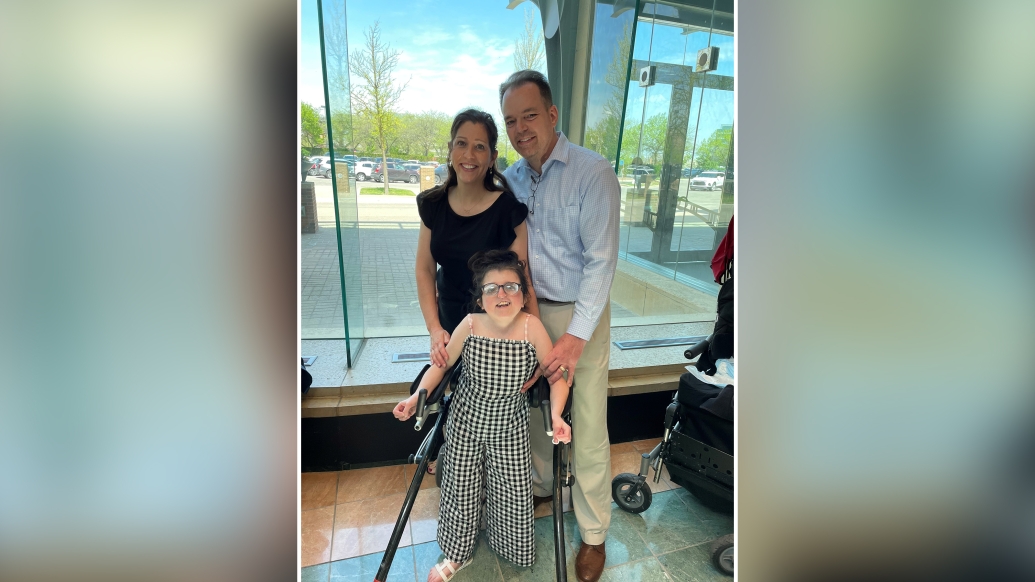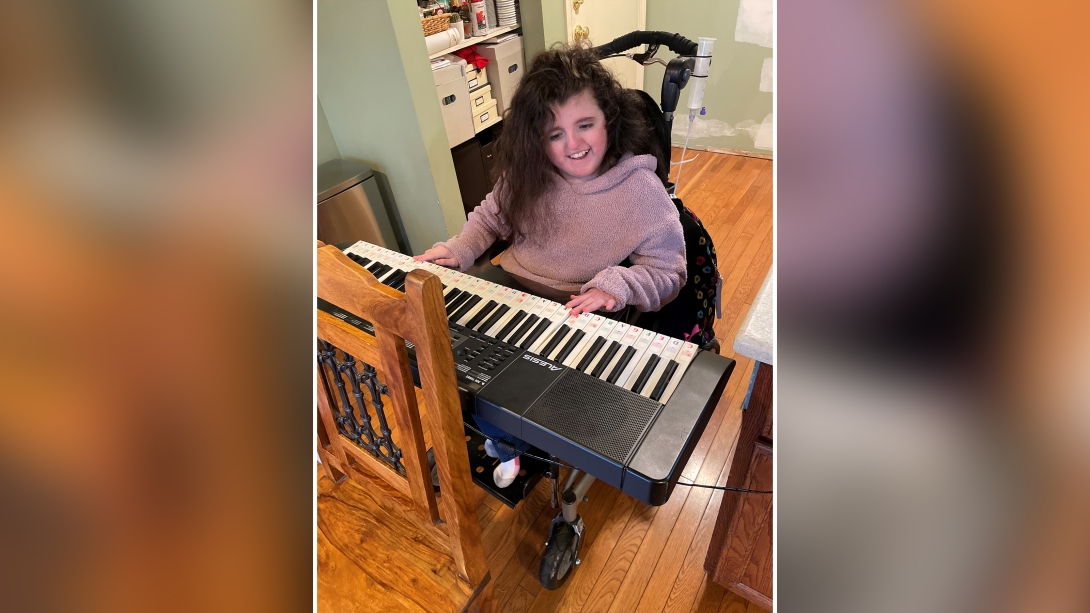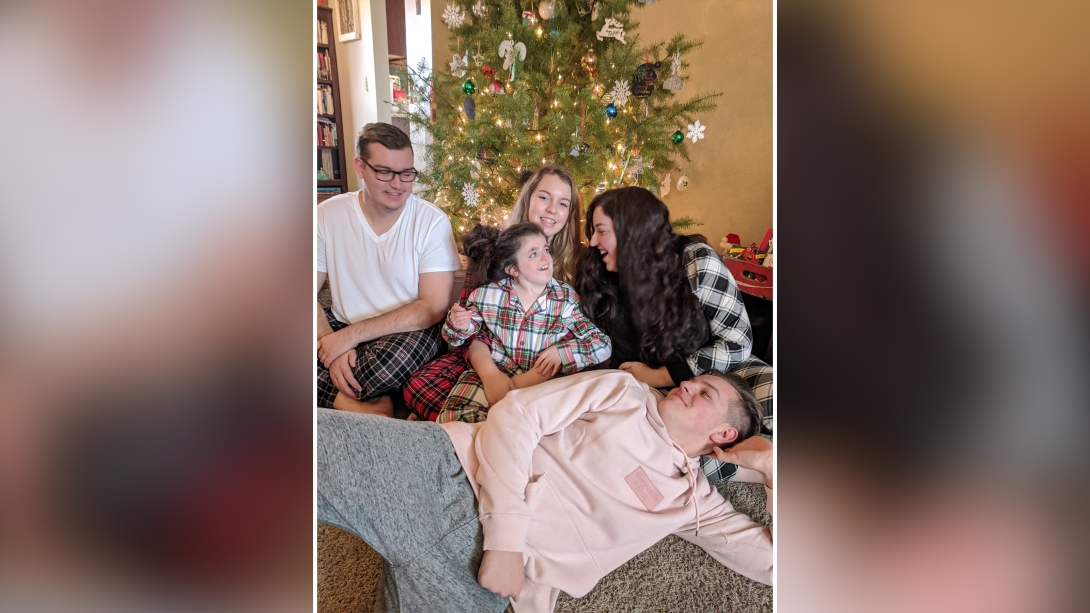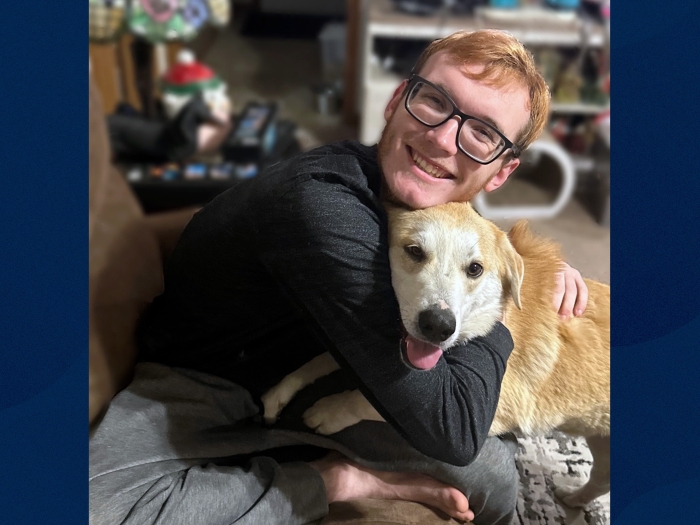Faith Smith spent nearly a year in and out of the hospital for pancreatic problems. Because of her complex medical issues, the standard approach to treatment wasn’t an option
5:01 AM
Author |

By the time Faith Smith met pediatric gastroenterologist George Zacur M.D., M.S., she’d seen multiple specialists from different health systems.
The then-12-year-old was rapidly losing weight, experiencing constant gastrointestinal infections, not keeping food down, and had inflammation in her pancreas that was sending her to the hospital for weeks at a time.
MORE FROM MICHIGAN: Sign up for our weekly newsletter
Medical complexities due to trisomy 18, a chromosomal abnormality that causes severe developmental delays, made it especially difficult for doctors to investigate the cause of the inflammation, or pancreatitis.
After a thorough review, Zacur and his colleagues at University of Michigan Health C.S. Mott Children’s Hospital finally discovered what was making Faith sick: a large fluid-filled sack the size of a baseball near her pancreas known as a pancreatic pseudocyst.
Draining it, however, would be a significant challenge. With much of her anatomy size comparable to that of a toddler, Faith’s throat was too narrow for the standard equipment doctors used for the non-invasive treatment proven to have the best outcome.
So Zacur thought of an unconventional solution, wondering whether a thinner endoscopic camera the department happened to have on hand but was intended for a different procedure in the lungs might work instead – it did.
It was the first time such an intervention had been used, leading to Michigan Medicine researchers presenting Faith’s case at the 2022 North American Society for Pediatric Gastroenterology, Hepatology, and Nutrition conference.
“Dr. Zacur’s compassion, courage and innovation are the reasons Faith is with us today,” said Jesi Smith, Faith’s mom. “We found our Michigan answer in Dr. Zacur and other providers at U-M. He didn’t give up on Faith when others may have. Because of his willingness to think outside the box and do something that had never been done before, we get to live this beautiful life with her.”
The instruments used for Faith’s procedure were half the size of standard equipment – similar to the difference between a No.2 pencil and a highlighter.

But the bronchoscope was just what the doctors needed to guide them through the mouth, the narrow throat, and into the stomach up against the fluid pocket so they could proceed with burning a hole and placing a mesh tunnel that allowed the pseudocyst to drain.
“We couldn’t get the standard scope to fit or perform the standard procedure, and because of Faith’s medical complexity, any other option would have come with serious risk of causing more harm,” Zacur said. “There is nothing in the literature on how to treat this problem in a child with Faith’s chronic health conditions. We needed to try something completely novel.”
Within a few days, Faith could keep food from her gastrostomy tube down again. She stopped crying from the abdominal pain. And after nearly a year of weeklong hospitalizations that led to missing multiple holidays, birthdays and family time, the symptoms were gone.
After a couple of months, she developed another pancreatic pseudocyst but this time doctors knew exactly what to do. Zacur and his team repeated the same procedure with the same unique equipment, which worked again for the second time.
Faith went from constant hospitalization to being home with her family, just in time to enjoy a big celebration for her fourteenth birthday on Dec. 23, 2022 and to spend Christmas at home.
“It was the best Christmas gift we could have asked for,” Jesi Smith said.
Faith’s care team at Mott has since uncovered the cause of the pancreatic pseudocysts. Because the teen was born with pancreas divisum – an abnormal connection of her pancreatic duct – she was at risk for pancreatitis and developing these fluid pockets.
There is nothing in the literature on how to treat this problem in a child with Faith’s chronic health conditions. We needed to try something completely novel.” George Zacur M.D., M.S.
The abnormal connection was preventing the pancreas from draining properly, leading to the collection of fluid. Her doctors were able to treat this condition to reduce the risk of future problems, Zacur says.
“When we met Dr. Zacur we finally had hope,” Faith’s father, Brad Smith, said. “Faith intimidates most doctors because she has so many special needs, but kids like her make doctors better because they challenge everybody in the room and raise the bar. What they’ve learned from her will help the next child.”
A complex medical journey since birth
Faith has always beat the odds “through the tenacity of great doctors and her love for life,” her parents said. Only an estimated 5-10% of children with trisomy 18, also called Edwards syndrome, live past their first birthday.
The rare condition occurs in about 1 in 2,500 pregnancies and occurs when babies’ cells have three copies of chromosome 18 instead of the usual two.
“We thank God and her exceptional doctors,” Jesi Smith said. “She just turned 14 and I can’t tell you how miraculous that is.”
Faith, who also has a seizure disorder, scoliosis and short stature among other medical complexities, now sees multiple specialists at U-M Health, including from neurology, otolaryngology, cardiology, endocrinology and gynecology.

“Her situation changed from always being an emergency and going to the ER to seeing doctors for routine care,” her mom said.
Faith is back to her smiley self, according to her parents. The teen, who loves people and crowds, playing on her keyboard, listening to music, watching football and “being the center of attention,” is especially enjoying more time with her older siblings, Grace, Elijah, Gideon and Hope.
“She doesn’t see or experience the world the same way as us, but it doesn’t diminish her value,” Jesi Smith said. “She’s a gift that has brought our family together in ways we could never imagine. It took people caring about and investing in Faith to be where we are. We appreciate every new day with her.”
Study cited: “Endobronchial ultrasound (ebus)-guided cystgastrostomy for a pancreatic pseudocyst in a child limited by abnormal oropharyngeal anatomy,” DOIi: 10.1097/01.mpg.0000874644.07593.cd

Explore a variety of health care news & stories by visiting the Health Lab home page for more articles.

Department of Communication at Michigan Medicine
Want top health & research news weekly? Sign up for Health Lab’s newsletters today!





